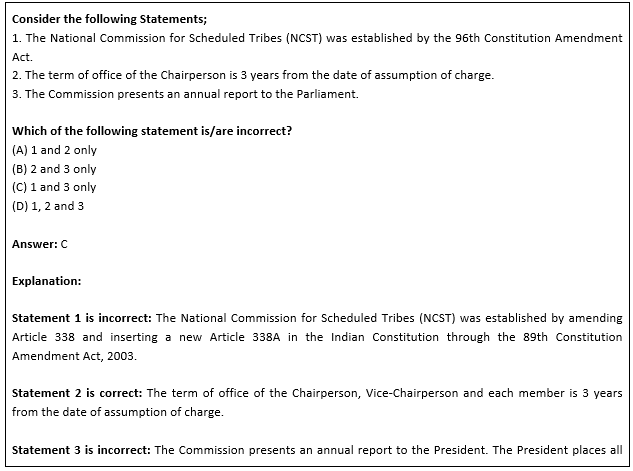Free Courses Sale ends Soon, Get It Now


Free Courses Sale ends Soon, Get It Now


.png)
Copyright infringement not intended
In News:
Key findings of the report:
Government Response:
National Commission for Scheduled Tribes (NCST):
The functions of the Commission are:
Powers of the Commission:


© 2024 iasgyan. All right reserved